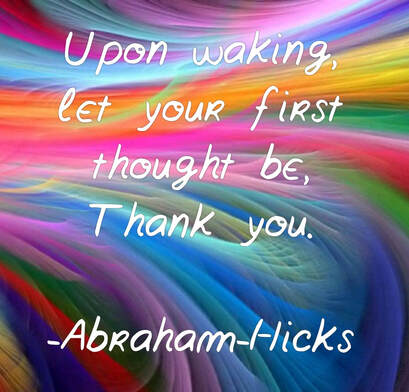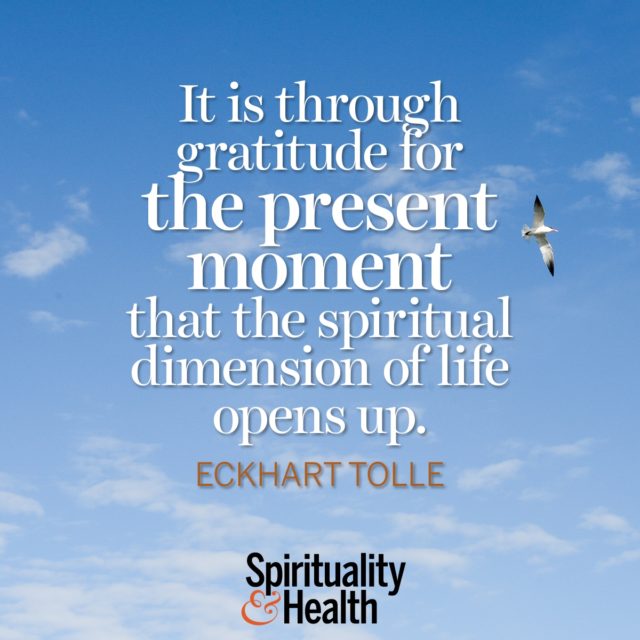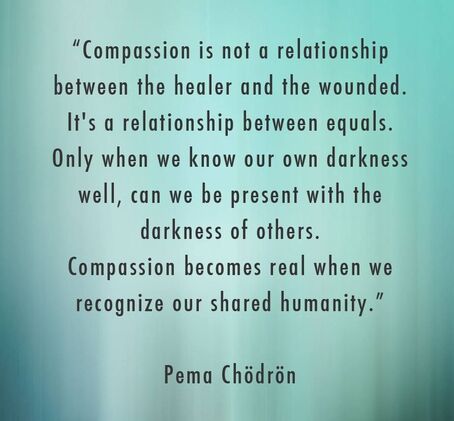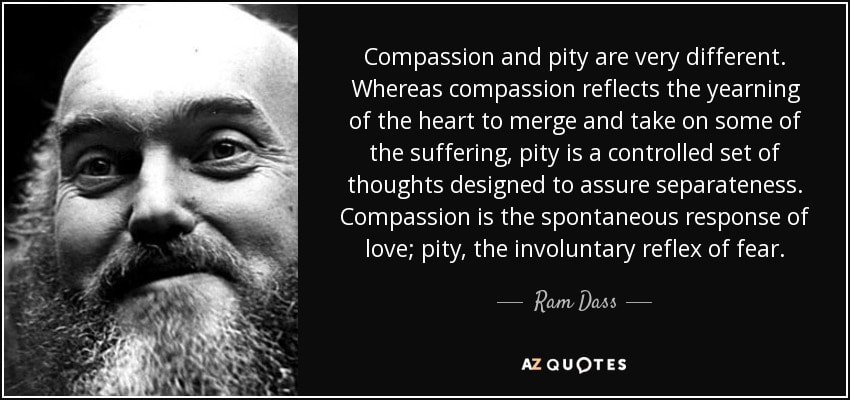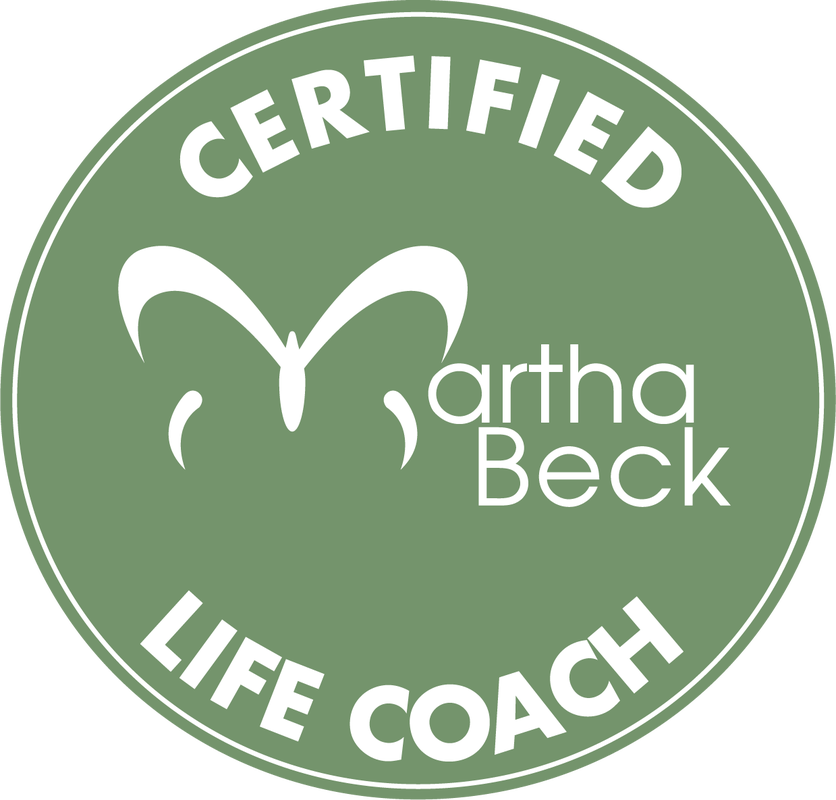|
It may seem like an obvious topic for the week of Thanksgiving…gratitude. What I would like to offer up here are some thoughts on how to do gratitude, when you just don’t feel like it. What happens if we just aren’t feelin’ it right now? It happens to all of us and trying to should ourselves into it, can actually be super counter-productive and keep us in a less than grateful place even longer.
There’s loads of science to support the idea that an attitude of gratitude has a positive impact on our brains and our lives. We even know that when we focus on appreciation or gratitude that we feel lighter, better, more authentic. And yet… it is quite possible to go long stretches of time where we seemingly forget to feel gratitude. Maybe you recently received a very scary report from the doctor. Maybe someone you love has turned away from you. Maybe you are dreading the holiday season for any number of reasons. Or, just maybe you can’t even point to anything in particular – you just can’t seem to hang on to feeling grateful and this may be the most challenging for us to make peace with – when we can’t point to a good reason to not feel good. Well, there are some things that can be obstacles to gratitude that aren’t anyone’s fault… Our brain’s natural bias toward negativity. I’ve talked about this here many times, but we humans are wired for negativity as a means of keeping us safe. The only thing is, we aren’t being chased by saber toothed tigers much these days – so our negativity bias focuses mostly on emotional dangers. In his book “Hard wiring Happiness” Rick Hanson says “The mind is like Velcro for negative experiences and Teflon for positive ones”. This explains a great deal of why we sometimes find it difficult to feel grateful. Overcoming this natural brain function takes effort and practice. Gratitude journals, learning to re frame the meanings we place on things and situations can go a long way in being an antidote to this programming we all have. Another obstacle to feeling gratitude is comparison. This also is a part of human nature. In today’s social media landscape, we have more ways than ever to feel those nagging feelings of being sub-standard in some way compared to others. We probably most often slip into downward comparison, which is where we see ourselves as not as good as others. My antidote on this one is something we discussed here last week – compassion and seeing common humanity in others and in ourselves. No one makes it through this life without hardship, suffering, mis-steps and failures. When we can keep this in mind, it helps us to see others as people, just like ourselves. According to author David Emerald, all of us live on a continuum between gratitude and feeling grumpy. Accepting your current emotional state, rather than making it a problem, is actually a leap forward. In fact, noticing that you are not feeling grateful increases your self-awareness, which eventually can lead you up the spectrum closer to feelings of gratitude. When we can embrace even the part of ourselves that feels more grumpy than grateful, we actually have a better chance of knowing our authentic selves. This doesn’t mean you hang out constantly on the end of the spectrum where you are grumpy and cranky —instead personally own your current state and take responsibility for taking a few steps that are known to contribute to feeling better. So, some things to try if you’re not feeling grateful and you’d like to amp up that muscle this week…
XOXOXOX Sandy
1 Comment
This week on The Double X Factor podcast we are looking into recognizing when we are feeling pity versus feeling compassion. I think for me, many times in many relationships I believe what I am feeling is compassion – yet as I look into this more deeply – I’m realizing that very often it is actually pity.
Pity has a flavor of one person being less capable than we are. When we are serving up pity, we are actually coming from a place of thinking this person cannot figure things out for themselves and that we need to help them fix it. We place them in the “one down” position and ourselves as a bit more superior. This is perhaps due to pity coming out of fear – fear of what this person’s actions say about us, fear that we might have to deal with some of our own discomfort, fear and lack of trust that this person has the same capabilities we do to figure out their stuff. When we see ourselves as superior in this way, it’s a pretty short drive to feelings of contempt towards them for not doing what we see as the “right” thing. It's as if we are saying "You can’t take care of yourself, so I need to fix it for you in order to make myself more comfortable." Pity has a lot more to do with am I ok, than are THEY ok. Compassion on the other hand is quieter. You have to be connected with yourself in order to give it. You may need to sit with your own discomfort at seeing someone struggle a bit to truly be compassionate because compassion means we see others as equals. Not as one person is wounded and the other is the healer as in pity. Pity is to make the other or ourselves less human. When we come from compassion, we trust that they will figure things out in a way that is right for them. Compassion is unconditional and loving. It’s not about fixing. When someone recently asked me what I think compassion feels like, I looked no further than my very close girlfriends. When I am struggling with something, they don’t try to solve it for me or tell me what to do. They don’t judge me and they show that they have confidence in me that I will indeed figure it out. They are supportive and validate my feelings for sure – and they also hold me accountable at the same time. There is an attitude of acceptance and love – not fixing. This is what it’s like to have someone’s back I think. It’s also how to have OUR OWN back – to give ourselves this kind of SELF-compassion rather than self-pity. What a lot of compassion requires is to be present. To just be with someone as they work through their difficult feelings or discomfort. This is probably why true compassion is so rare – we all struggle with being truly present. When we are compassionate we are willing to walk next to someone, loving them as they figure it out for themselves - without judgement. People don’t want our pity. They don’t want us to feel sorry for them, it’s a very disempowering way to view others. I think about a quote I saw attributed to the actor Michael J. Fox who has Parkinson's disease – he said that "pity is a benign form of abuse". That kind of drives it home now doesn’t it. I am currently reading the newest book by Buddhist nun, Pema Chodron and in it she shares a practice for building compassion and dropping judgement. It’s called “Just like me.” Let’s say you are stuck in traffic, this is a condition that can stir up some pretty big discomfort in we humans. You look at the angry driver in the car near you who’s losing it and you say to yourself “just like me, this person doesn’t want to feel uncomfortable. Just like me this person loses it sometimes. Just like me, this person doesn’t want to be disliked". We can’t presume to know exactly what someone else is feeling and thinking, but we do still know a lot about each other. We know that people want to be cared for and don’t want to be hated. We know most of us are hard on ourselves and that we get emotionally triggered, but we want to help in some way. We know every living being desires happiness and doesn’t want to suffer. This practice is about common humanity. It reminds us we all have times when our triggers or unhelpful habits, like getting angry, take hold. This can help us to have compassion for the other as well as ourselves. It helps to keep us out of pity and seeing others as incapable in some way. Just like us, others have the capacity and ability to find their way. Actually, unless we find our own way, we won't get the lessons that we need for our own particular, personal journey. It’s important not to use this practice of Just Like Me as just another way to bash ourselves. We can use it as an opportunity to also see great things happening too. We can see someone helping another and think to ourselves “Just like me”. Another disclaimer, having compassion doesn’t mean we can’t take a stand. It’s important to speak up when we’ve been hurt, when we see others being hurt and when we see examples of abuse of power. If you want to dive more deeply into this idea, I highly recommend Pema’s latest book titled “Welcoming the Unwelcome”. If that title scares you just a bit – you’re just like me! I’m coming to understand that having true compassion is really only possible when we are in our true authentic nature. When we are coming from the love that we are, we have the capacity to offer true compassion rather than pity - for not only others, but also for ourselves. When we come from authenticity, we are present, loving and our judgment dissipates. I’ve been on a mission for a few years now, trying to emit my full light more of the time. Perhaps ending the war within myself and being at peace, offering myself and others compassion (rather than pity) is the fast track to shining my own light. XOXOXOXOX Sandy |
Sandy Edie HansenI use this space to "Chat" about things I am working through and learning in my life currently. Join me! Archives
September 2022
Categories |
Proudly powered by Weebly

